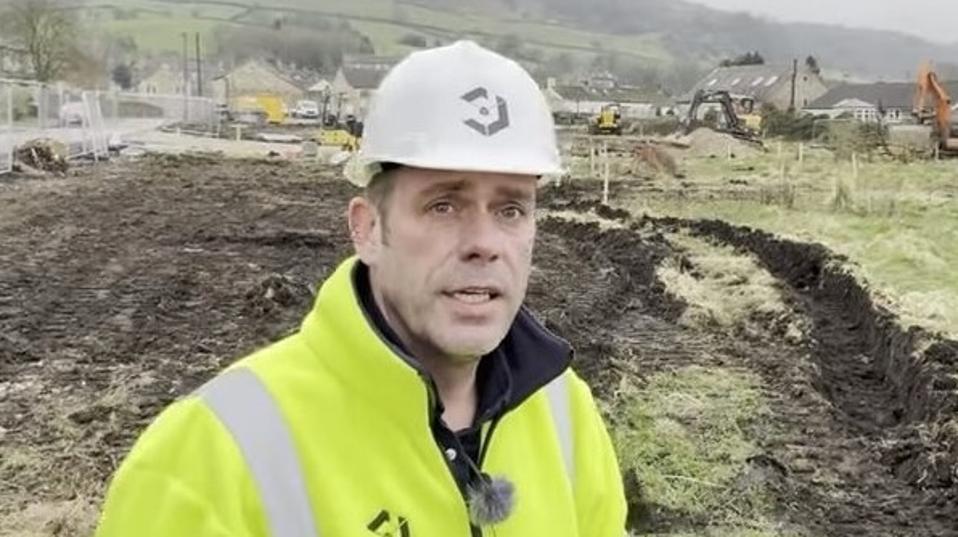Back in 2018, Gary Woodhead had a 27-year career in construction operations. By night, however, he was a hobbyist investor in Bitcoin and smart contracts stored on the blockchain network.
That’s where he realized there was an untapped opportunity with potential for huge societal impact.
Real estate has long been a lucrative vehicle for investment: Returns on construction projects — whether commercial, residential, holiday or healthcare — can be more than 40%.
But it’s an exclusive club, traditionally accessible only to institutional investors and high-net-worth individuals.
“Why shouldn’t average working-class people – nurses, taxi drivers, teachers – be the financiers and beneficiaries of real estate development?” thought Gary. What if we were able to fractionalize the equity and debt of construction projects to allow more financial inclusivity?
Not only that, if they built carbon-neutral, energy-positive homes, they could reduce household energy bills and help the UK meet its climate change targets.
So together with co-founders Joey Jones and Matthew Couch, Gary launched CurveBlock, leveraging digital securities to democratize property investment.
It’s a story of scrappy resilience, risk-taking and making the most of luck.
First, there was the one-two punch of COVID-19, which shut down the entire construction market and dried up seed stage funding.
For most fledgling start-ups, that would have been the kiss of death. But as Gary learned from his time in the Royal Armoured Corps, you don’t quit: “As you go through your military career, it’s drilled into you: improvise, adapt and overcome. Because in the face of adversity, new opportunities are always born.”
One of those was the opportunity to apply to the Founders Institute in Silicon Valley, which had gone fully virtual. Out of 430 UK applicants, CurveBlock was one of 67 startups accepted.
“The program was intense, with kick out points along the entire way,” says Gary. “If you failed the pitch, you were out. If you didn’t improve your pitch you were out.” But three months later, CurveBlock was one of 10 companies that graduated and it led to receiving their first VC investment, from Loyal VC.
But a major obstacle lay ahead.
Because there was a reason this real estate investment model didn’t exist: in 2018, tokenized assets were classed as cryptocurrencies under UK law — and the Financial Conduct Authority (FCA), the UK equivalent of the SEC, wasn’t prepared to provide regulatory cover to retail investment in cryptocurrencies.
That’s where a bit of luck comes in.
Joey, a former registered investment advisor under the SEC regulatory licensing, stumbled across the blogs of Ian Taylor, who was writing about the lack of regulation for digital assets. They connected and it quickly became apparent that Ian and CurveBlock were on the same page.
Ian, who’s now head of blockchain at KPMG, had established Crypto UK to lobby for the benefits of Web3 and digital innovation within financial services. He and Joey, among others, joined forces to lobby Parliament, Her (now His) Majesty’s Treasury and the FCA.
It took five years of trans-Atlantic trips, roundtables and meetings with members of Parliament, but they finally succeeded in showing how a regulated solution would lead to financial inclusion.
In November 2023, the FCA revised the law, allowing digital securities to be included in the Digital Securities Regulatory Act — no longer classified as cryptocurrencies.
Having overcome that major hurdle, CurveBlock is moving full steam ahead. Its Shared Economy Platform, which launched at the start of 2024, currently has over 200 users and testers and is looking to register for the inaugural cohort of the FCA’s digital security sandbox, an experimental environment that enables companies to test their solutions with consumers prior to regulatory sign off. They’ve also been invited by the Japanese regulator (FSA) to launch in Japan, and by the Canadian High Commission to launch in their jurisdiction.
On the construction side, CurveBlock is building energy positive housing projects in England, Wales and Scotland as well as directing 5% of its profits toward tackling homelessness and housing crisis issues.
Gary says: “Let’s say we build a diversified portfolio of 100 projects over 10 years. The risk is mitigated and the average person can invest, for as little as £10, without needing specialized expertise in due diligence or asset valuation. We’ve essentially created a new asset class, which gives the 99% of society access to wealth creation opportunities they’ve never had before.”

